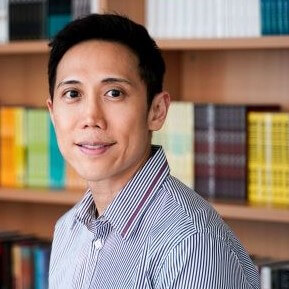By the SMU Digital Marketing Team
One of the ways SMU sets itself apart as an institution of higher learning is by offering students the opportunity to confront real-world puzzles and problems as a part of their undergraduate study. The university’s unique multidisciplinary pedagogy cultivates students with the technical skills, broad range, and ethical compass to chart their way through the challenges of tomorrow.
The SMU Core Curriculum

Prof Elvin Lim, Dean of SMU Office of Core Curriculum
Every SMU student undergoes the Core Curriculum which consists of 12 course units that include a credit-bearing community service and internship component. The learning takes place across the duration of their study (up to four years to complete) with three courses preassigned in their first year.
The 12 carefully selected courses of the Core Curriculum sit under three interrelated pillars: Capabilities, Communities and Civilisations.
“We live in a world wherein the degree that we read for may not always lead to the profession that we end up joining,” says Professor Elvin Lim, Dean of the Office of Core Curriculum at SMU.
“This is the ‘new normal’, and increasingly so.”
Developing generalist and transferable skills
“While we can or should become experts in a field or two, we must develop generalist and transferable skills,”
The Core Curriculum at SMU provides the framework for students to deepen their intellectual curiosity and ability to apply their knowledge sets to multidimensional problem-solving in the real world. SMU’s cohort of 2020 graduates secured healthy employment and starting job salaries in part because the university is continuously reinforcing its interdisciplinary pedagogy to meet the needs of a world in flux,
“While we can or should become experts in a field or two, we must develop generalist and transferable skills,” says Prof Lim.
“That will not only facilitate a career pivot when necessary or desired, but also develop a macroscopic and bird’s eye view of what an organisation or situation demands that is a condition for leadership potential.”
To develop the intellectual breadth and agility in students, and to encourage students to take ownership over the learning outcomes of the courses , Core faculty resist single approaches or answers to the questions they raise in classrooms, explains Prof Lim.
Instead, a multidisciplinary approach is applied, to help students see that even on the same question or domain, different experts can don different lenses to diagnose a problem and recommend solutions. Through interdisciplinary studies and cross-domain skill sets, disruption can be modelled as a way of working to create the future that these students envision.
Introduction of new modules
In 2021, eight new modules were added to the Core Curriculum to offer more choice to students and to address the new realities of our world. The modules cover a broad scope of topics, including pandemic-related ones in the Technology and Society Basket; such as Epidemics – Biomedicine, and Global Health and Biotechnology in a Global Society as well as Outbreak: Epidemics and Pandemics in the Modern World.
The introduction of these modules reflects SMU’s commitment to staying relevant and on top of global trends and dynamics. By allowing students to engage with issues that are directly relevant to understanding the Covid-19 pandemic, and the global climate challenge, the SMU classroom is not separate from the real world, but a laboratory and forum to appreciate it.
Other new courses introduced centre on topics of sustainability and Green Cities—Climate Change: Global and Local Solutions and Technological Innovations Enhancing Urban Sustainability. Complimenting this lineup are Imagining the Self: Literature, Race and Gender, Asia and World Literature: Beyond Orientalism and Science and Technology Studies: Where Science Meets Society.
Addressing possible concerns of the Core Curriculum’s interdisciplinary approach deviating from students’ selected areas of study, Prof Lim shares that disciplinary and interdisciplinary learning are not a zero-sum game; indeed depth and breadth mutually reinforce our understanding of any phenomenon or situation. Students are enjoying many of the courses, and faculty are very much enjoying the facilitation of their learning journey.
“The nature of Core Curriculum courses here and elsewhere is that their relevance to a student’s intended profession may not always be immediately relevant,” notes Prof Lim.
“But we are very confident that the broad-based and interdisciplinary approach that we are cultivating in students will stand them in good stead as adaptive and creative thought leaders of tomorrow.”
Ready to join the ranks as an adaptive and well-rounded SMU student? Accept your offer today!








